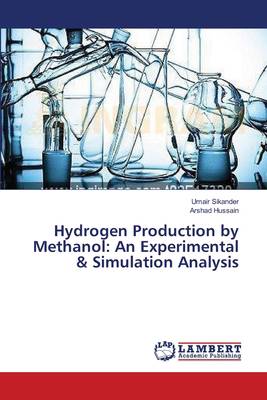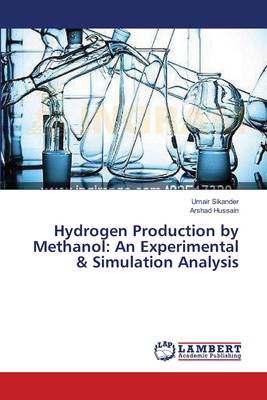
Je cadeautjes zeker op tijd in huis hebben voor de feestdagen? Kom langs in onze winkels en vind het perfecte geschenk!
- Afhalen na 1 uur in een winkel met voorraad
- Gratis thuislevering in België vanaf € 30
- Ruim aanbod met 7 miljoen producten
Je cadeautjes zeker op tijd in huis hebben voor de feestdagen? Kom langs in onze winkels en vind het perfecte geschenk!
- Afhalen na 1 uur in een winkel met voorraad
- Gratis thuislevering in België vanaf € 30
- Ruim aanbod met 7 miljoen producten
Zoeken
Hydrogen Production by Methanol
An Experimental & Simulation Analysis
Umair Sikander, Arshad Hussain
Paperback | Engels
€ 58,45
+ 116 punten
Omschrijving
Hydrogen is the fuel of future. It has found its uses as an alternate energy source either by direct combustion or by electricity generation through fuel-cell. Hydrogen being the lightest gas has storage problems and risk hazards. In order to overcome these challenges idea of on-board production of hydrogen is popular among researchers. For on-board production of hydrogen process of partial oxidation of methanol is proposed and discussed in this work. For partial oxidation of methanol a fixed bed catalytic reactor is designed. In order to explain the method in detail, computer aided modeling and simulation of process is carried out using Aspen-HYSYS V7.1 tool. Simulation studies are focused to optimize the process for best possible conversion of methanol to desired product hydrogen. By simulation various parameters and response of fixed bed reactor is studied in detail. Reaction kinetics is explained on the basis of Langmuir Hinshelwood model in this work. In order to make the whole process reliable experimental rig is also designed for physical production of hydrogen by partial oxidation of methanol. Results from both simulation and experimental work are analyzed and compared.
Specificaties
Betrokkenen
- Auteur(s):
- Uitgeverij:
Inhoud
- Aantal bladzijden:
- 72
- Taal:
- Engels
Eigenschappen
- Productcode (EAN):
- 9783659637186
- Verschijningsdatum:
- 11/11/2014
- Uitvoering:
- Paperback
- Formaat:
- Trade paperback (VS)
- Afmetingen:
- 152 mm x 229 mm
- Gewicht:
- 117 g

Alleen bij Standaard Boekhandel
+ 116 punten op je klantenkaart van Standaard Boekhandel
Beoordelingen
We publiceren alleen reviews die voldoen aan de voorwaarden voor reviews. Bekijk onze voorwaarden voor reviews.









